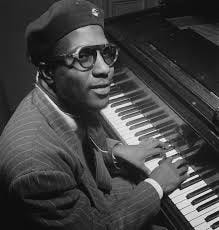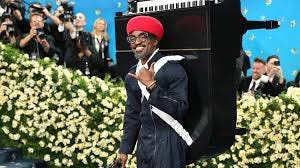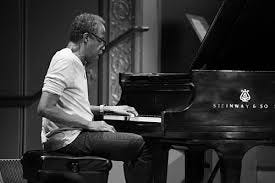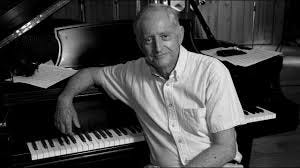The experts are outraged. They’ve hastened to their portals to express shock – they’re shocked! – that someone with no skills or formal training has entered their world. (Have they somehow missed the news since January 20? See: Elon Musk, Robert F. Kennedy Jr., et. al.)
The interloper with the piano on his back smiles, possibly enjoying the shock he’s provoked. Having already upended the flute world, he’s apparently coming for the lucrative solo piano realm. (All it takes is a single Spotify search, for “Relaxing Piano,” to appreciate the market opportunity here.)
And while perusing the offerings, please enjoy a taste of 7 Piano Sketches, the new Andre’ 3000 release, which was mostly captured on the voice memo app of the former Outkast rapper’s mobile phone.
This is not exactly “Boy vs. Girl in the World Series of Love.”
This isn’t even a proper playground kerfuffle.
It’s just another episode of “Who Gets the Megaphone?” Another instance of heated nonstop crosstalk with no one pausing to listen, another dismaying indication of our vanishing cultural discourse. It doesn’t matter if the Sketches are “good music” or “bad music,” an addition to the canon or an affront. (For what it’s worth, I’ve listened and I’m not sharing any reaction to the music, because it’s not relevant to this discussion.)
This project follows Andre’ 3000’s first solo effort, the Grammy-nominated New Blue Sun, which featured him playing flute in a plush ambient-leaning sonic landscape. In a message posted on Instagram, Andre’ 3000 described the pieces on the new release as “improvisations,” and made clear that he arrives at the piano with zero training. “I cannot name which notes, keys or chords that I’m playing.” Noting the influence of Thelonious Monk and others, he adds “I simply like the sound and mechanics of piano playing.”
Apparently this disclaimer did not enchant the current thoroughly credentialed professionals of jazz piano world.
The gifted pianist, scholar and writer Ethan Iverson – whose Transitional Technology Substack has become indispensible for its deep insights on improvised music – went to the trouble of transcribing a portion of one Andre 3000 piece. In the accompanying post, he wrote “Enough is enough. I simply demand expertise if the topic is solo piano, and André 3000 is strictly amateur hour.”
On Facebook, Matthew Shipp – another magnificently gifted pianist who’s released daring, frequently critically-acclaimed solo and ensemble works – echoed this sentiment, reminding his readers that he and most of his colleagues develop their art without budgets or conventional support structures. After the decades of study and hard artistic work, he found himself upset by the very existence of 7 Piano Sketches. “The premise of a rich guy with social power whose bad improv album will get a lot more attention then any album i do took me out-- i can't lie about that.”
Shipp describes the Andre 3000 project as showing “a lack of respect for the discipline,” adding “it is depressing that this garbage will get any attention because he has a name and fame.”
Shipp has come by this view honestly, and is entitled to it. At the same time, expertise isn’t what it used to be – see Musk, Kennedy, etc.
So….Who gets the megaphone?
The Met Gala attendee who has nothing musically to prove (see: Stankonia) and is, if his disarming and entrancing last tour is any indication, testing out his musical ideas in public? Or the experts who have devoted decades to the development of a personal sound and aesthetic on the instrument? Does said dues-paying mean they get to demand expertise from all practitioners? Andre 3000 has experience selling records, which, it must be said, many jazz musicians do not; does that count? Is the expert world only for insiders? Are they actually saying that outsider approaches are not welcome in their rarified air? Or just these kinds of outsider approaches?
The great shame and heartbreak of this affair: We are living in a mind-bendingly fertile moment of solo piano creativity, with a great array of individual thinkers exploring provocative and profound sound worlds. It’s a golden age happening almost entirely beyond the awareness of the general listening public, in part because it gets scant attention in what’s left of the media. There’s not enough discussion of this! And: That’s beyond the artist’s control! And: Andre 3000 is not the enemy!
Even the successful artists like Brad Mehldau, who play solo piano with a constantly shifting mixture of melodic momentum, harmonic insurrection, dexterity and imagination, toil without a plethora of champions.
The common gripe is that there’s very little media attention, and that’s true. But the problem behind that problem is audience attention. And that one may now be beyond fixing, no matter how many passionately argued deep dives are on offer here on Substack.
That’s because taking the ride with an improvising artist involves and requires a receptivity to the unknown. Curiosity. Surrender of control. Patience. Time.
As a culture, that’s not our present location. We’re in upside-down land where having access to eyeballs is far more consequential than craft. Let’s be real: It takes almost superhuman powers, like, you know, the ability to carry a piano on one’s back like a backpack, to reverse the default indifference of the modern bombarded listener, even a jazz-curious one. Such a person has heard every gymnastic expert-approved bebop trick, encountered the sounds of great placidity conjured by Keith Jarrett and the extreme half-step knot-tying of Cecil Taylor and everything in between. Maybe they’re numbed by the notes. Or the adjectives spilled about the notes. (Warning: there are some of those below!).
Please take a moment to savor Shipp’s sprockety opening phrase. I hear it as the sound of a discussion opening up, ideas left hanging in air just long enough to become questions or provocations down the road. Captivated by the intensity he brings to note after note, I want to hear where he goes next, in part because it’s clear that he does too. He’s immersed in the process of this particular art unfolding on this particular evening. Rare confluence of craft and inspiration.
Here we should spare a thought for those solo pianists who are not trying to push toward any outer-limit extremes, for whom the art happens inside the subtle gestures of melodic interpretation. They’re easy targets of derision from all stakeholders – the cosplaying celebrities and the academic elites and the jazz renegades. Guess what? These artists get ignored, too!
Consider the low-key brilliance of Eddie Higgins, who died in 2024 after a long and insufficiently heralded career in jazz. He recorded in trio settings with top-shelf rhythm sections, and also solo – sometimes for audiophile labels known for the faithful crystalline capture of acoustic instruments.
Higgins makes the piano sparkle. Nothing he plays seems to challenge him; he soars through intricate broken-triplet lines with a coolheaded serenity, takes risks that don’t sound like risks because he’s got things so under control. He’s alive to the joy and romance of a standard theme like “I Thought About You,” and he is generous about sharing that joy, whether or not the results are “groundbreaking.”
Is that a crime? Ask the experts! Or the anti-experts! Then again: Ask Andre. Maybe the celebrity who just dropped a song called “Hotel Lobby Pianos” has a hot take.










If we start bashing people because “ They don’t know what their doing” than, where to start?
Your evenhanded approach is all too rare in this day and age, so thanks for that. Reading the takedowns led to delight far beyond what Andre's album had to offer - and, in 2025, I'll take that where I can find it, too!